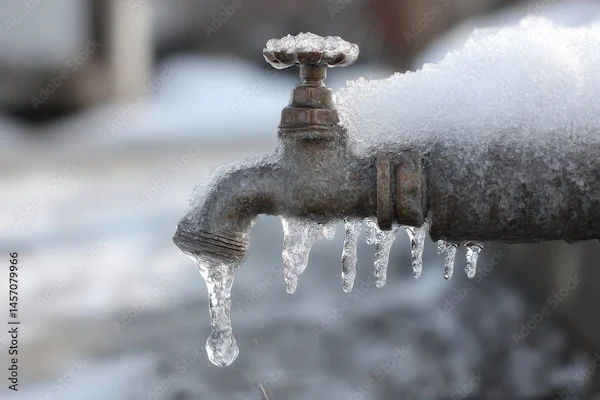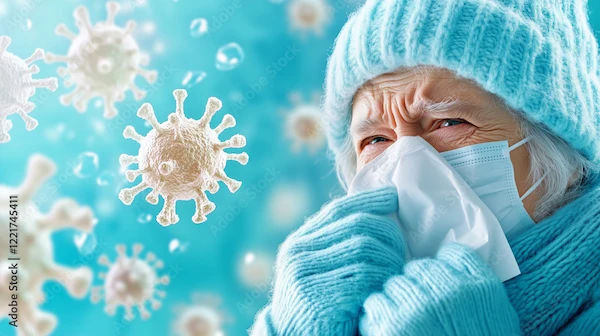Preventing Diseases in Summer: Tips for a Healthy Season
Stay healthy this summer with tips to prevent heat illnesses, dehydration, infections, and allergies. Learn about sun protection, hydration, and hygiene practices.

Written by Dr.Sonia Bhatt
Last updated on 3rd Jul, 2025

Introduction
Summer brings longer days, outdoor activities, and plenty of sunshine, but it also increases the risk of seasonal diseases. If you are not careful, the summer heat can take a toll on your health. Hot and humid weather creates the perfect environment for bacteria and viruses to thrive, leading to illnesses such as food poisoning, dehydration, heat exhaustion, and mosquito-borne infections.
Several diseases become more common in summer due to high temperatures, contaminated food, and increased insect activity. Gastrointestinal infections often result from food contamination in warm conditions. Skin infections caused by excessive sweating and humidity can also be a problem, while mosquito-borne diseases such as dengue, malaria, and chikungunya spread rapidly during this season.
In this article, you will learn about effective ways to reduce your risk of common summer diseases and ensure a healthy, enjoyable season.
Heat-Related Illnesses
Heat exhaustion occurs when your body loses excessive fluids and struggles to regulate temperature. You may experience dizziness, heavy sweating, nausea, and muscle cramps. If untreated, heat exhaustion can progress to heatstroke, a severe condition where your body temperature rises dangerously high. Symptoms include confusion, rapid heartbeat, and loss of consciousness. Heatstroke is a medical emergency that requires immediate cooling and medical attention.
You can reduce your risk of heat exhaustion and heatstroke by taking precautions during hot weather.
Drink plenty of fluids, especially water and electrolyte-rich drinks.
Wear light, loose-fitting clothing to help your body cool down.
Avoid direct sunlight during peak hours and seek shade whenever possible.
Use fans or air conditioning to keep indoor spaces cool.
Take breaks if engaging in outdoor activities to prevent overheating.
Staying mindful of these strategies can help you enjoy summer while protecting your health.
Dehydration
Your body relies on water to function properly, but summer heat increases fluid loss through sweating. If you don’t drink enough fluids, dehydration can set in, leading to fatigue, dizziness, and other health complications.
Dehydration occurs when your body loses more fluids than it takes in. Excessive sweating, prolonged sun exposure, and not drinking enough water can contribute to this condition. Common symptoms include dry mouth, dark urine, headache, and feeling lightheaded. Severe dehydration may cause confusion, rapid heartbeat, or fainting, requiring urgent medical attention.
To prevent dehydration, you should:
Drink water regularly, even if you don’t feel thirsty.
Eat water-rich foods like watermelon, cucumber, and oranges.
Limit alcohol and caffeine intake, as they contribute to fluid loss.
Carry a reusable water bottle when outdoors to ensure you drink enough.
Increase fluid intake if engaging in exercise or spending extended time in the sun.
By staying hydrated, you can maintain energy levels and avoid heat-related complications.
Sunburn and Skin Protection
Ultraviolet (UV) rays from the sun can damage your skin cells, causing redness, pain, and peeling. Repeated exposure to UV radiation increases the risk of wrinkles, dark spots, and skin cancer. The sun’s rays are strongest between 10 a.m. and 4 p.m., making it crucial to limit exposure during these hours. Even on cloudy days, UV rays can still penetrate and harm your skin.
Protecting your skin requires a combination of preventive measures.
Apply a broad-spectrum sunscreen with SPF 30 or higher before going outside.
Wear protective clothing, including hats, sunglasses, and long-sleeved shirts.
Seek shade whenever possible, especially during peak sunlight hours.
Reapply sunscreen every two hours, or more frequently if swimming or sweating.
Stay aware of UV index levels and adjust your outdoor activities accordingly.
Taking these steps can help you enjoy the sun safely while minimising skin damage.
Food and Waterborne Diseases
The risk of food and waterborne infections increases during summer due to warm temperatures and poor food storage conditions. Bacteria multiply faster in hot and humid weather, making contaminated food and drinks a common source of illness. Ensuring proper food hygiene and drinking clean water can help prevent infections.
Some common infections include:
Salmonella: Found in raw or undercooked eggs, poultry, and dairy, causing diarrhoea and fever.
E. coli: A bacteria often present in contaminated water or undercooked meat, leading to severe stomach cramps.
Cholera: Spread through unsafe drinking water, causing severe dehydration and weakness.
Recognising symptoms like nausea, vomiting, and abdominal pain early can help you seek treatment before the infection worsens.
Maintaining good hygiene and food safety reduces your risk of infections. Simple precautions can keep you and your family safe from foodborne diseases.
Always wash fruits and vegetables before eating them.
Store perishable foods in the refrigerator to prevent bacterial growth.
Avoid consuming street food that has been exposed to heat for long hours.
Drink filtered or boiled water to eliminate bacteria and harmful contaminants.
Practise hand hygiene before handling or eating food.
By following these food safety measures, you can protect yourself from infections and enjoy a healthy summer.
Mosquito-Borne Diseases
Summer provides ideal conditions for mosquito breeding, increasing the risk of diseases such as dengue, malaria, and chikungunya. If you live in or travel to areas with high mosquito activity, taking preventive measures can help you avoid serious illnesses.
Mosquito-borne diseases spread when infected mosquitoes bite humans, transmitting harmful viruses and parasites. Some of the most common infections include:
Dengue fever causes high fever, severe body pain, skin rashes, and weakness.
Malaria leads to chills, high fever, and excessive sweating.
Chikungunya results in severe joint pain and prolonged fatigue.
If you develop fever, persistent headaches, or unusual skin rashes, you should seek medical attention immediately, as untreated mosquito-borne infections can lead to complications.
You can reduce mosquito exposure by making small adjustments to your surroundings and daily habits. Some effective strategies include:
Using insect repellents to prevent mosquito bites when outdoors.
Wearing long-sleeved clothing and trousers to cover exposed skin.
Keeping doors and windows closed or using mosquito nets to block entry points.
Removing stagnant water from flower pots, tyres, and containers where mosquitoes breed.
Use electric vapourisers or natural repellents like neem oil for added protection.
Allergies and Respiratory Problems
Pollen, dust, and pollution levels rise during summer, triggering allergies and respiratory problems in sensitive individuals. If you suffer from asthma or seasonal allergies, managing triggers and taking preventive steps can help you stay comfortable.
Some of the most common allergens during summer include:
Pollen, from grass and trees, can cause sneezing and itchy eyes.
Dust mites can lead to nasal congestion.
Mould spores can trigger respiratory symptoms.
Pollution and smoke can irritate your lungs and worsen asthma.
Taking the right precautions can help you breathe easier and reduce allergy-related discomfort.
Stay indoors during peak pollen hours, especially in the morning.
Use air purifiers to remove dust and allergens from indoor spaces.
Keep windows closed when pollen counts are high.
Drink plenty of water to stay hydrated and keep your airways clear.
Take prescribed medications such as antihistamines or inhalers if needed.
By being proactive, you can prevent allergies from interfering with your daily activities and enjoy a symptom-free summer.
Skin Infections and Rashes
Hot and humid weather creates the perfect conditions for bacterial and fungal growth, increasing the risk of skin infections and rashes. If you sweat excessively or spend long hours outdoors, your skin may become irritated, leading to discomfort and inflammation. Taking care of your skin during summer can help prevent infections and keep your skin healthy.
Several skin conditions become more common during summer due to heat, moisture, and prolonged sun exposure.
Heat rash (prickly heat): Caused by blocked sweat ducts, leading to red, itchy bumps.
Fungal infections: Conditions like athlete’s foot and ringworm thrive in damp, sweaty areas.
Bacterial infections: Cuts and insect bites can become infected if exposed to bacteria.
Sunburn and sun allergy: Excessive UV exposure can cause redness, peeling, and blistering.
Preventing summer skin problems requires maintaining good hygiene and protecting your skin from excess heat.
Wear breathable, loose-fitting clothing to reduce sweat buildup.
Keep your skin dry and use antifungal powders in areas prone to sweating.
Apply sunscreen with SPF 30 or higher to prevent sunburn and skin damage.
Avoid sharing personal items like towels and razors to minimise bacterial infections.
If you develop rashes or skin irritation, use calamine lotion or aloe vera gel for relief.
By following these precautions, you can protect your skin and prevent discomfort during summer.
Maintaining Good Hygiene
Good hygiene plays a crucial role in preventing infections and maintaining overall health. Sweat, dust, and germs accumulate quickly in hot weather, increasing the risk of bacterial and viral infections. Poor hygiene can lead to skin breakouts, gastrointestinal illnesses, and respiratory infections. Maintaining proper hygiene helps you avoid common summer diseases and promotes overall well-being.
Incorporating simple hygiene habits into your daily routine can help keep infections at bay.
Shower regularly, especially after sweating or outdoor activities.
Wash your hands frequently, particularly before meals and after using public spaces.
Keep your clothing clean and dry to prevent bacterial growth.
Disinfect frequently touched surfaces, including mobile phones and doorknobs.
Trim your nails regularly to prevent dirt and bacteria from accumulating.
By maintaining these habits, you can protect yourself from seasonal infections and stay fresh throughout the summer.
Conclusion
Summer increases the risk of heat-related illnesses, foodborne infections, mosquito-borne diseases, and skin problems. Staying hydrated, maintaining proper hygiene, protecting yourself from excessive sun exposure, and taking precautions against mosquito bites can help you stay healthy. Eating fresh, well-stored food and drinking clean water are also essential for preventing digestive issues.
Your health should be a priority throughout the year, but summer presents unique challenges that require extra care. Taking preventive measures allows you to enjoy the season without falling sick. By being mindful of hydration, hygiene, sun protection, and infection control, you can reduce your risk of summer-related illnesses and make the most of the warm weather. Small lifestyle changes can go a long way in keeping you and your family safe during the hotter months.
Consult Top General Physicians
Consult Top General Physicians

Dr. D Bhanu Prakash
General Practitioner
10 Years • MBBS, AFIH, Advanced certificate in critical care medicine, Fellowship in critical care medicine
Hyderabad
Apollo 24|7 Clinic, Hyderabad

Dr. Mohammed Kamran
General Practitioner
5 Years • MBBS, FIDM
Nashik
Apollo 24|7 Clinic - Maharashtra, Nashik

Dr. Suraja Nutulapati
General Physician/ Internal Medicine Specialist
10 Years • MBBS, MD (Internal Medicine)
Hyderabad
Apollo 24|7 Clinic, Hyderabad
(850+ Patients)

Dr. Vasanthasree Nair
General Practitioner
15 Years • MBBS
Angamaly
Apollo 24|7 Clinic - Kerala, Angamaly
(425+ Patients)

Dr Divya Lekha Gunta
General Practitioner
10 Years • MBBS, MD (Pathology)
Visakhapatnam
Apollo 24|7 Clinic - Andhra Pradesh, Visakhapatnam




